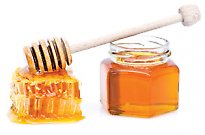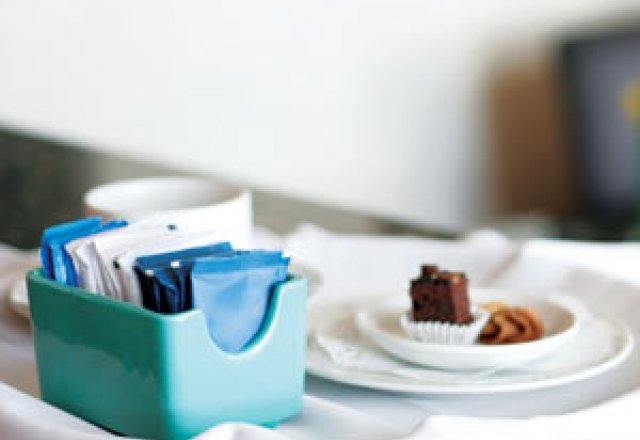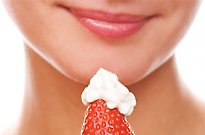
You're sweet enough

Wellness writer and co-author of 7 Things Your Doctor Forgot to Tell you, Andi Lew, fills us in on the truth about artificial sweetners.
Although you may think you're losing weight or being healthier by replacing sugar or fat with artificial sweetners, you may be doing the opposite.
Most foods that are labelled ‘low fat’ or ‘light’ will contain artificial sweeteners. Artificial sweetener has been promoted as the great breakthrough for weight watchers because it’s virtually calorie-free, but this is misleading.
Although you may think you’re losing weight or being healthier by replacing sugar or fat with artificial sweeteners, you may be doing the opposite. Your body doesn’t know what to do with the chemicals in artificial sweetener, which makes them hard to process. This causes your digestive system to slow down and as a result, you may actually gain weight… Argh!
The effects go beyond this, because studies show that long-term use creates an environment for blood-borne cancers like lymphoma to develop. And all this time we have been led to believe that we were making healthier choices when we opted for artificial sweeteners, just because they had fewer calories!
We’re now getting an inkling of the possible dangers of regular aspartame consumption. There are many reports from doctors and nutritionists who have ‘cured’ their clients of many conditions, simply by removing aspartame from their diets.
The multi-billion dollar aspartame industry would have us believe that the opinion ‘aspartame kills’ is wrong and that it would require the consumption of 100 cans of diet soda a day to be harmed by their product. Their main defence being that the three components of aspartame are found in many natural foods and are therefore safe. This is like saying that carbon monoxide is safe because it contains only carbon & oxygen, the same components as carbon dioxide.
The following report by Felicity Lawrence, for the San Francisco Chronicle, further explores the controversy surrounding man-made artificial sweeteners:
‘Methanol (wood alcohol) makes up 10 per cent of aspartame and is highly toxic — the minimum lethal dose for an adult is two teaspoons. It is also found in some fruits & vegetables, but never occurs in natural foods without ethanol & pectin, its ‘antidotes’. Ethanol and pectin prevent methanol from being metabolised into formaldehyde (embalming fluid) and formic acid (the same chemical as fire ant venom), both deadly toxins. An ethanol drip is the standard emergency room treatment for methanol poisoning. Aspartame contains no ethanol or pectin, therefore the methanol is converted to formaldehyde and formic acid in your body when you consume it, which are toxic.’
THE SICKLY SWEET FACTS
Aspartame – the essential ingredient in many artificial sweeteners – breaks down to phenylalanine, aspartic acid and methanol when heated and also within our warm bodies. The methanol is further metabolised into formaldehyde, a poison known to damage the immune and nervous system as well as cause genetic damage. Aspartame breaks down the protective coating surrounding neurons in our brain, causing a break in the blood-brain barrier, thus allowing toxins to move directly into the bloodstream with a whole cascade of destructive effects.
About 10 per cent of the population has a tendency to multiple sclerosis (MS) but never actually develop the symptoms, but these people can be pushed into full-blown MS with continual usage of products containing aspartame. Almost half of aspartame by weight is itself a toxin – technically an excitotoxin (a substance which damages nerve cells).
Research done on 1,800 rats showed that it causes cancer of the kidney and of the peripheral nerves in the head. Earlier data from the same study linked aspartame to a greater risk of leukaemia and lymphomas, even at doses very close to what is considered the acceptable daily intake for humans. Obviously, with such a list of dangerous side effects aspartame should never be given to children.
The study concluded that consuming products containing aspartame might contribute to ailments such as:birth defects, brain cancer, chronic fatigue, diabetes, dizziness, emotional disorders, Epilepsy, Graves Disease, headaches, lowered sperm count, migraines, MS - Multiple Sclerosis and Parkinson's disease symptoms.
Another leading artificial sweetener is saccharin, popular because it is so much sweeter than sugar. It has been in use for longer than any other artificial sweetener and has been subjected to the most studies with regard to possible effects.
When research linked it to cancer in 1977, it was not banned because there were no alternative sweeteners for diabetics at the time. The U.S. permitted its use so long as manufacturers affixed a warning label. Consequently, many products in the U.S. like chewing gum bear the legend ‘this product contains saccharin which has been known to cause cancer in laboratory animals’.
Cyclamate was also at one time a widely used artificial sweetener, but this chemical has been banned in the U.S. since 1970, based upon its possible link with cancer.
Dr Joseph Mercola (www.mercola.com) has dedicated his life to revealing the truth behind artificial sweeteners and has published the results of his research in the book Sweet Deception. This topic deserves a whole book to itself and if you want to know more, this is an excellent source.
WHAT ARE THE ALTERNATIVES?
Stevia and Xylitol versus Sugar And Artificial Sweetener
Stevia (used in sweeteners like Natvia and PureVia) is made from the leaves of the South American plant stevia rebaudiana. As a herb and a natural sweetener, Stevia is superior to any artificial product. Sweeter than regular sugar and with far fewer calories, it is used to sweeten tea in Japan and South America. Stevia is beneficial in balancing blood sugar and has antimicrobial properties. Again, moderation is the key, but when such excellent herbal alternatives are available, you needn’t sweeten anything artificially.
Xylitol is another alternative to sugar and artificial sweeteners, and may be used safely in small amounts. Derived from the birch tree, it is widely used in chewing gums as it inhibits bacterial growth and reduces the incidence of cavities. It tastes exactly like sugar and is especially good for diabetics and those who are hypoglycaemic.
A 1986 study verified Xylitol’s safety – it received the highest and safest ADI (acceptable daily intake) rating. You can purchase xylitol from health food stores and use it as a sweetener in drinks and baked goods.
While no sweetener is without controversy, artificial sweeteners can be quite damaging to our health and may cause serious illness. If you have the choice - and you do have the choice – it is best to avoid them completely. Some people choose them because they believe an artificial sweetener is actually healthier and better for them than sugar. It is not. All artificial sweeteners are exactly that — artificial.
Note: If you're diabetic you have good reason to seek alternate sweet sources, but choose wisely. There are many natural sweeteners that are much safer than any artificial ones. Once you reduce your consumption of sweet, sugary foods it’s likely that your cravings will also abate.


